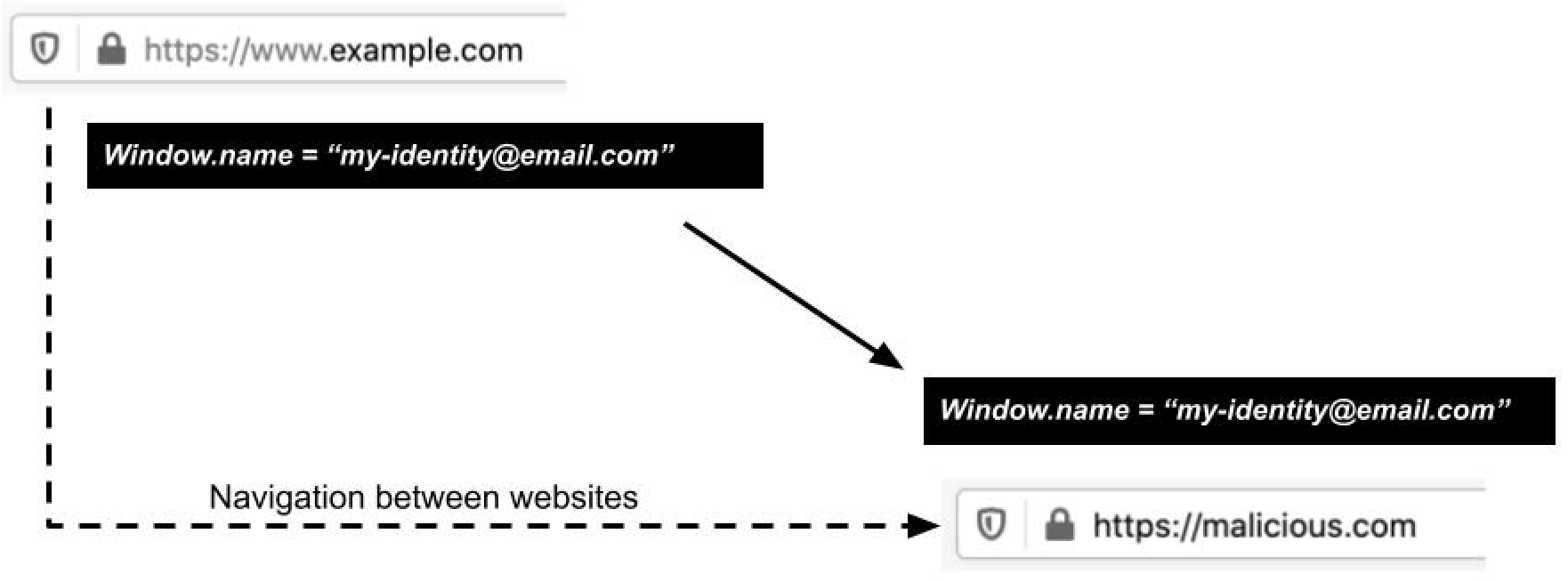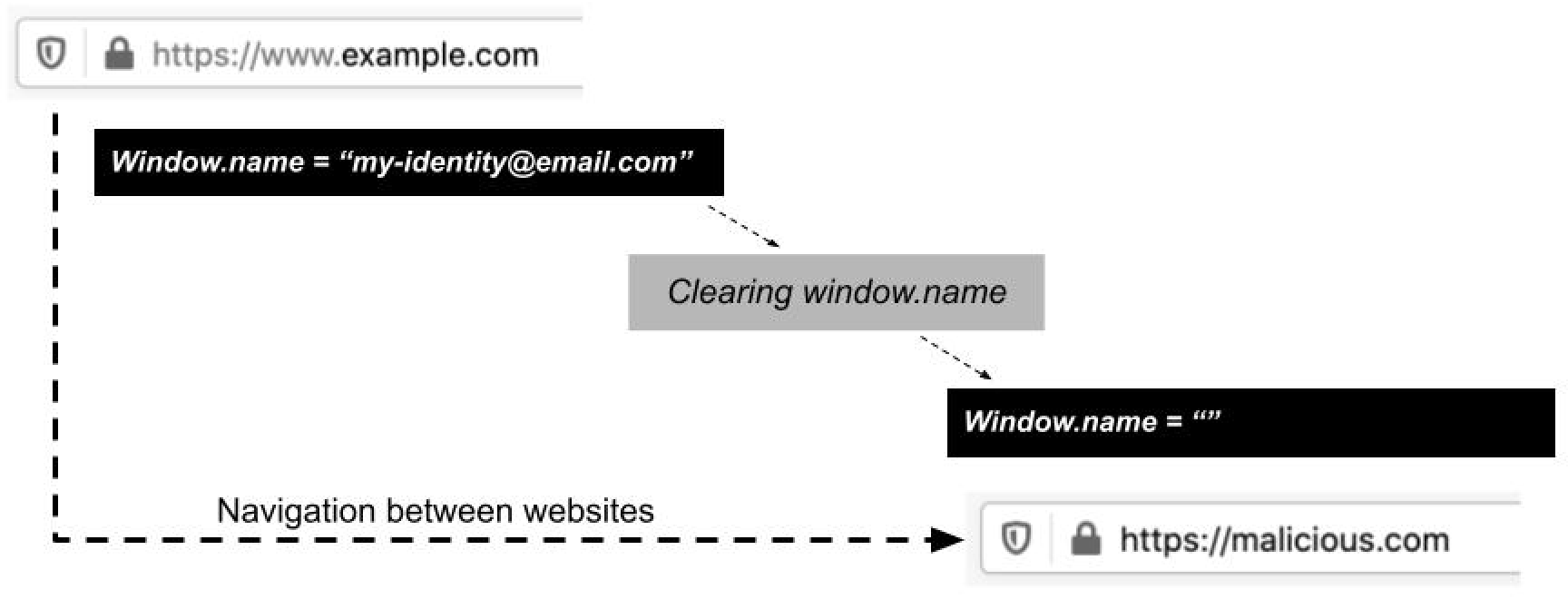We are pleased to announce that Firefox 88 is introducing a new protection against privacy leaks on the web. Under new limitations imposed by Firefox, trackers are no longer able to abuse the window.name property to track users across websites.
Since the late 1990s, web browsers have made the window.name property available to web pages as a place to store data. Unfortunately, data stored in window.name has been allowed by standard browser rules to leak between websites, enabling trackers to identify users or snoop on their browsing history. To close this leak, Firefox now confines the window.name property to the website that created it.
Leaking data through window.name
The window.name property of a window allows it to be able to be targeted by hyperlinks or forms to navigate the target window. The window.name property, available to any website you visit, is a “bucket” for storing any data the website may choose to place there. Historically, the data stored in window.name has been exempt from the same-origin policy enforced by browsers that prohibited some forms of data sharing between websites. Unfortunately, this meant that data stored in the window.name property was allowed by all major browsers to persist across page visits in the same tab, allowing different websites you visit to share data about you.
For example, suppose a page at https://example.com/ set the window.name property to “my-identity@email.com”. Traditionally, this information would persist even after you clicked on a link and navigated to https://malicious.com/. So the page at https://malicious.com/ would be able to read the information without your knowledge or consent:
Tracking companies have been abusing this property to leak information, and have effectively turned it into a communication channel for transporting data between websites. Worse, malicious sites have been able to observe the content of window.name to gather private user data that was inadvertently leaked by another website.
Clearing window.name to prevent leakage
To prevent the potential privacy leakage of window.name, Firefox will now clear the window.name property when you navigate between websites. Here’s how it looks:
Firefox will attempt to identify likely non-harmful usage of window.name and avoid clearing the property in such cases. Specifically, Firefox only clears window.name if the link being clicked does not open a pop-up window.
To avoid unnecessary breakage, if a user navigates back to a previous website, Firefox now restores the window.name property to its previous value for that website. Together, these dual rules for clearing and restoring window.name data effectively confine that data to the website where it was originally created, similar to how Firefox’s Total Cookie Protection confines cookies to the website where they were created. This confinement is essential for preventing malicious sites from abusing window.name to gather users’ personal data.
Firefox isn’t alone in making this change: web developers relying on window.name should note that Safari is also clearing the window.name property, and Chromium-based browsers are planning to do so. Going forward, developers should expect clearing to be the new standard way that browsers handle window.name.
If you are a Firefox user, you don’t have to do anything to benefit from this new privacy protection. As soon as your Firefox auto-updates to version 88, the new default window.name data confinement will be in effect for every website you visit. If you aren’t a Firefox user yet, you can download the latest version here to start benefiting from all the ways that Firefox works to protect your privacy.

